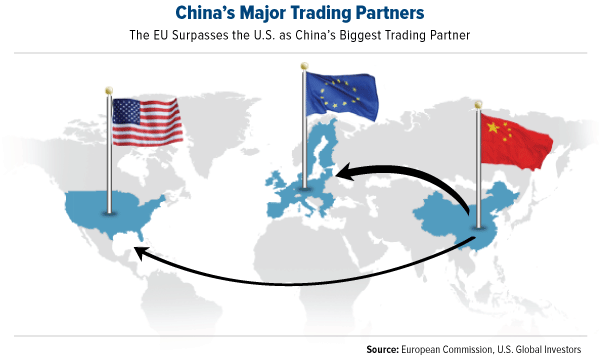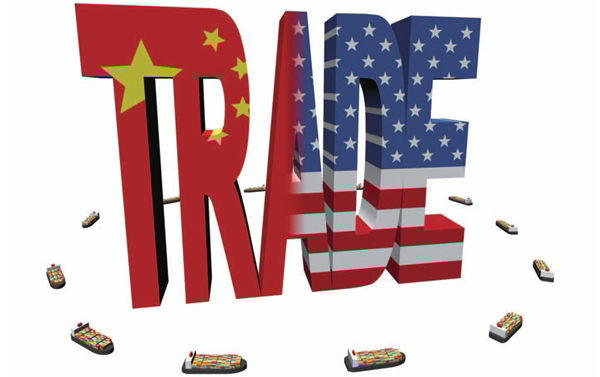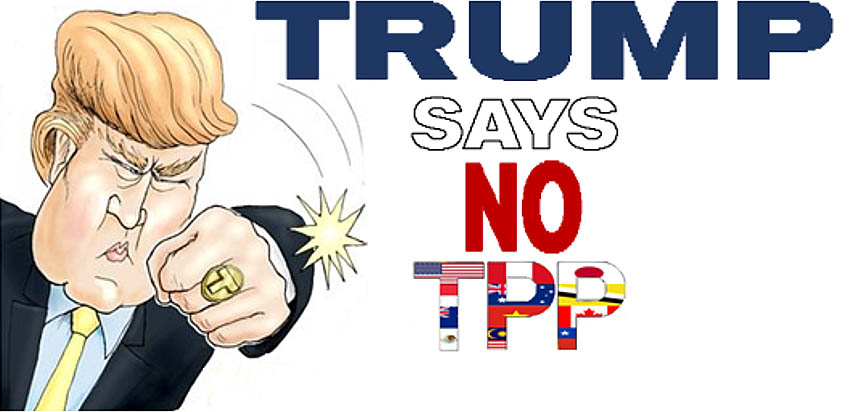
Alicia Garcia Herrero, Chief Economist for Asia Pacific at NATIXIS and Senior Fellow at Bruegel
Jianwei Xu, Associate Professor, Beijing Normal University
Nov 24, 2016
It is too early to say what the Trump administration’s trade policy will look like – but a total cut-off from Asian partners is unlikely. It would harm the US economy, and offer China even more scope to cement its position in Asia. Nevertheless, with TPP and TTIP both looking unlikely, the EU should move fast to build relationships with China and ASEAN countries.
Wang Yang, Vice Premier, State Council of People's Republic of China
Nov 24, 2016
Vice Premier Wang Yang of China reassures U.S. business leaders that China would continue to open up its domestic market, make its decision-making more transparent and offer better IPR protection.
Yukon Huang, Senior Associate, Carnegie Endowment
Nov 23, 2016
There is little evidence that an undervalued renminbi played a major role in driving China’s trade surpluses over the past decade. Likewise, a causal relationship between the U.S. trade deficits and China’s surplus has been assumed that is not true. Structural shifts, not an undervalued exchange rate, were the major factors driving China’s export capabilities. However, political systems need to find ways to address local interests without giving up the benefits that globalization can bring.

Joshua P. Meltzer, Senior Fellow, Brookings Institution
Nov 23, 2016
The U.S.-China relationship is complex and often fraught, but getting it right is possibly the most important economic and foreign policy task of any President. The pathway to a more advantageous U.S. economic relationship with China will not be easily forged, but it is vital to the American economy. As China’s President Xi Jinping told Trump recently, a cooperative U.S.-China relationship is the only pathway forward.
Christopher A. McNally, Professor of Political Economy, Chaminade University
Nov 22, 2016
The combined effects of globalization and technological change caused “deindustrialization” across a wide swath of the United States. Deindustrialization is responsible for making good paying manufacturing jobs requiring low to medium skills scarce, eviscerating the middle class in certain regions, and stoking political resentment—a major issue for workers both in the U.S. and China.

Hugh Stephens, Distinguished Fellow, Asia Pacific Foundation of Canada
Nov 18, 2016
With the election of Donald Trump to the White House, the Obama Administration has finally accepted the inevitable and has announced that it will cease efforts to push the Trans Pacific Partnership (TPP) forward in the waning days of the Lame Duck session. Over the long term, Washington will need to re-assert its trade presence in the Asia-Pacific region. The supply chains are too interwoven and interdependent for the U.S. to go at it alone, despite the isolationist rhetoric emanating from the U.S. election.
Long Yongtu, Chairman, Center of China & Globalization
Nov 09, 2016
This December marks the 15th anniversary of China’s accession to the World Trade Organization. In the past 15 years, China could have played a bigger role in promoting global governance had the world’s institutional structures allowed it optimum participation in the global rule-making process. That will be China’s main objective in the future.
Xu Hongcai, Deputy Director, Economic Policy Commission
Nov 07, 2016
China’s economy was stable as reported by the NBS, shaking off the negative growth of 54 months and showing that China’s industrial output has escaped from the difficulty of deflation. If the short-term steady growth policy and the long-term structural reform policy can be carried out, economic growth is expected to be over 6.5% next year — despite any potential actions by the US Federal Reserve and domestic pressures.
Alek Chance, Research Fellow, Institute for China-America Studies
Nov 03, 2016
The importance of China’s Belt and Road Initiative (BRI) is clear in regards to its place in economic and foreign policy. How it fits into U.S.-China relations is less obvious. While BRI could contribute to competition between the U.S. and China, it could also be used to enhance cooperation—an initiative that must be engaged and shaped with conscious efforts.
Sourabh Gupta, Senior Fellow, Institute for China-America Studies
Oct 31, 2016
The current international monetary order is failing to provide the necessary tools to cope with episodes of capital flow volatility. In the short term, the BRICS countries should step in and take steps to address this issue. In the long run, they should seek to reform the monetary system and promote international financial stability.
Back to Top

- China-US Focus builds trust and understanding between the U.S. and China through open dialogue among thought leaders.
- Our Offerings
- Topics
- Videos
- Podcasts
- Columnists
- Research Reports
- Focus Digest
- Stay Connected
-
Thanks for signing up!
- Get the latest stories from China-US Focus weekly.